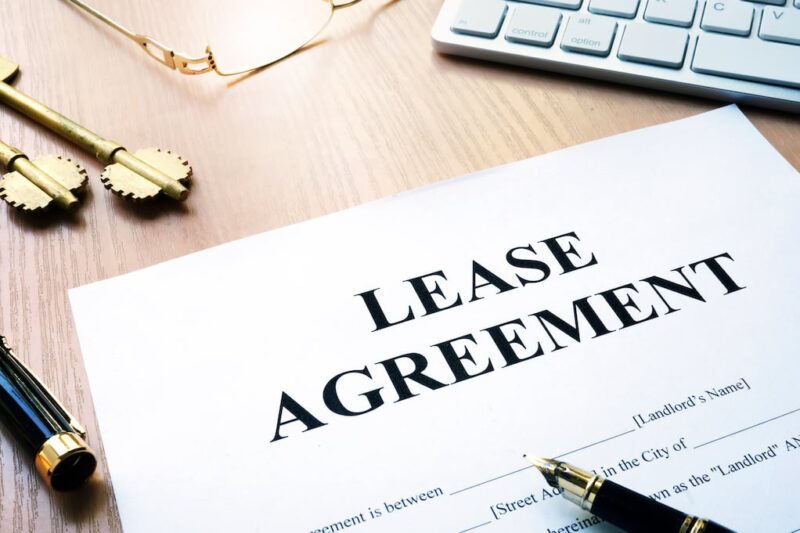Life, with all its ebbs and flows, often moves in unpredictable ways. From unforeseen health challenges to sudden life changes, the unpredictability can be daunting. While we cannot control many of these unexpected twists and turns, we can certainly prepare for them.
For business owners, in particular, this preparation becomes even more important. A business represents not just an investment of money, but years of hard work, dreams, and aspirations. Safeguarding this legacy from life’s uncertainties is not just wise—it’s imperative.
The purpose of this article is to examine one such protective mechanism for businesses: lease clauses addressing death and disability. Through understanding and implementing these specific lease stipulations, business owners can ensure that their enterprises are shielded from potential upheavals.
With the right clauses in place, a business can survive through tough times with resilience, ensuring its longevity and the peace of mind of its stakeholders.
Understanding the Basics

Lease clauses are specific provisions or terms written into rental agreements or contracts that dictate the rights, responsibilities, and protections of both the lessee (tenant) and lessor (landlord). For business owners, these clauses are not just legal formalities; they serve as shields, ensuring that their business operations remain unaffected by potential adversities.
By clearly defining terms of occupancy, financial commitments, and other contingencies, lease clauses act as a blueprint for addressing unforeseen events, offering business owners a level of protection against uncertainties that might otherwise jeopardize their enterprise.
Why Death & Disability Clauses are Essential
In the realm of business, the intermingling of personal and professional lives is inevitable. Death and disability clauses stand as safeguards, ensuring that a business owner’s sudden departure, whether due to tragic circumstances or incapacitation, does not cascade into chaos for the enterprise and its stakeholders.
These clauses, such as in a dental office lease, fortify a business’s foundation by ensuring that in such moments of crisis, a predefined plan is in place to assure either a seamless transition of business operations or an orderly termination.
Beyond just business continuity, these provisions protect the financial interests of the deceased’s family, preventing them from being ensnared in legal quagmires or burdened with unforeseen liabilities. These clauses offer a shield, mitigating the potential financial and legal repercussions of life’s unpredictabilities.
Key Features of Death & Disability Lease Clauses

Rent Abatement/Reduction
In the unpredictable terrain of business, the Rent Abatement/Reduction feature stands as a safeguard against abrupt financial strain. This clause allows for a potential reduction or even a complete waiver of rent, should the lessee face incapacitation or death. Such provisions ensure that the business or its successors aren’t immediately overwhelmed by financial obligations during crises.
Lease Termination Rights
The unforeseen can necessitate quick, decisive action. Lease Termination Rights provide businesses the much-needed flexibility to end a lease agreement prematurely, without bearing crippling penalties. This right becomes invaluable, allowing for agile decision-making during times of unexpected adversity.
Assignment & Subletting Rights
The continuity of a business often requires a seamless transition of responsibilities. Assignment & Subletting Rights in lease clauses ensure that, if needed, another qualified individual or entity can take over the lease, ensuring uninterrupted business operations. This provision thus acts as a bridge, linking past operations with future potential.
Buy-Out Option
For some businesses, the property itself holds significant value or potential. The Buy-out Option clause provides an avenue for the lessee’s family or representatives to acquire the property or even sell the ongoing business. This feature offers strategic choices, enabling stakeholders to chart the best course forward after a tragic event.
Automatic Lease Extension
In the aftermath of an unexpected event, stakeholders often need time to recalibrate and decide. An Automatic Lease Extension offers a brief yet critical grace period, ensuring that decisions about the future of the business aren’t made in haste. It serves as a buffer, granting stakeholders a window to strategize and make informed choices.
Crafting the Right Lease Clause

Designing an effective lease clause demands a blend of foresight, customization, and legal expertise. Engaging with an experienced attorney is the keystone, ensuring that the crafted clause not only aligns with prevailing laws but is also implacable against potential legal challenges.
Recognizing that every business has its unique nature and challenges, it’s necessary to tailor these clauses to reflect the specific needs and nuances of the enterprise, as well as the personal preferences of the business owner.
This customization, coupled with a proactive approach to anticipating potential challenges, ensures that the lease clause stands as a bulwark, protecting the business and its stakeholders from unforeseen adversities and keeping all legal bases covered.
Case Study
In the bustling heart of New York City, Samantha, a passionate restaurateur, established her dream bistro. As her establishment thrived, she never anticipated her sudden incapacitation due to a car accident.
Fortunately, Samantha had astutely incorporated a death and disability clause in her lease agreement. This foresight allowed her family to seamlessly reduce their rent obligations temporarily, providing them with the necessary time to determine the future of the bistro.
Without this clause, Samantha’s legacy could have faced immediate financial distress and potential closure. Her story highlights the undeniable importance of anticipating the unpredictable and safeguarding one’s business interests with the right lease provisions.
Conclusion

In the dynamic world of business, where unexpected events can swiftly alter the course, prudent planning remains a necessity. Death and disability lease clauses act as safety nets, safeguarding the interests of business owners and their stakeholders during turbulent times.
By understanding and implementing these protective measures, business owners not only secure their enterprises but also ensure peace of mind for themselves and their loved ones.

